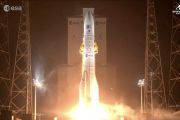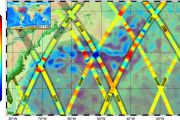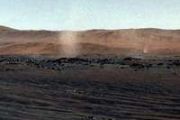
Copernical Team
Blue Origin reveals its orbital maneuvering vehicle: Blue Ring
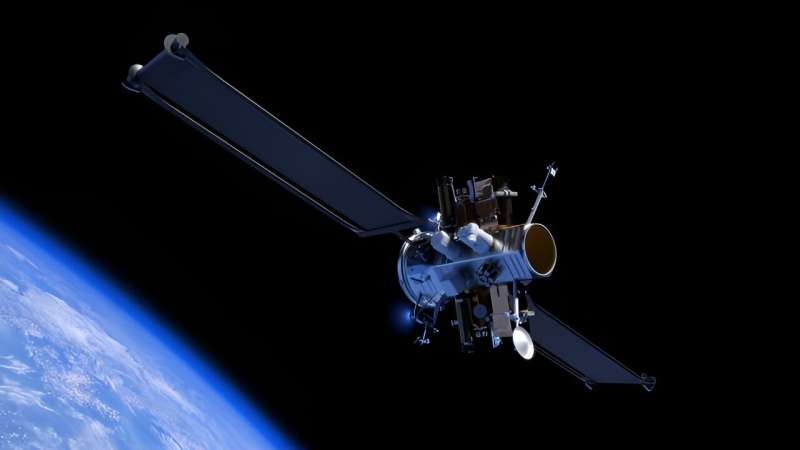
The Jeff Bezos-founded aerospace company, Blue Origin, recently announced its new and upcoming Swiss army knife-style spacecraft platform, Blue Ring, which comes after very little public discussion by Blue Origin regarding this project. For example, a January 2023 story broke when Blue Origin briefly announced a job posting for Blue Ring Senior Program Manager on its Careers page, but the job was pulled less than 24 hours later. Overall, Blue Origin has been quite mum about Blue Ring.
While the most recent announcement was brief, it conveyed how the goal of Blue Ring will be to provide a multitude of services, including logistics, refueling, and transportation, and is slated to be part of a new Blue Origin business unit called In-Space Systems.
Webb pinpoints a high-speed jet stream on Jupiter
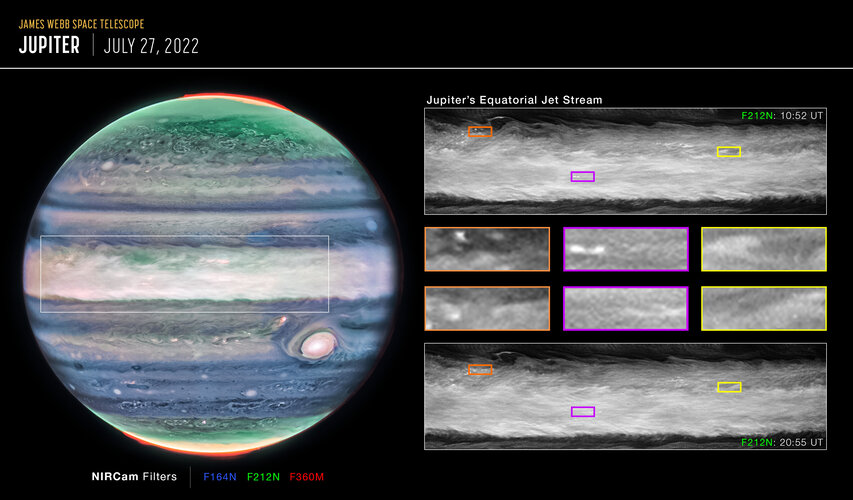
Researchers using the NASA/ESA/CSA James Webb Space Telescope’s NIRCam (Near-Infrared Camera) have discovered a high-speed jet stream sitting over Jupiter’s equator, above the main cloud decks.
Ariane 6 joint update report, 19 October 2023

The Ariane 6 Launcher Task Force consists of top management of ESA, as the overall Ariane 6 procuring entity and launch system architect, of the French space agency CNES, as the launch base prime contractor, of ArianeGroup as the launcher system prime contractor and of Arianespace as the launch service provider. This group reports regularly on progress being made towards inaugural flight of the new Ariane 6 launcher.
Copernicus operations resilience: Inuvik wildfires

Copernicus operations resilience: Inuvik wildfires
A patch for the stars
 Image:
Marcus Wandt in Axiom Space flightsuit
Image:
Marcus Wandt in Axiom Space flightsuit Year 2075: martian rovers saved from cyber attack
 Image:
Image:
The scene was set: a research base on the Red Planet was struck by a cyberattack and eight teams on Earth had just a matter of hours to save it. Far from being a farfetched scenario, cyberattacks are unfortunately a daily problem for all sectors, including space exploration, and can have devastating consequences.
The ‘Pwn The Rover’ hacking contest was held on 17 October at ESA’s mission control centre in Darmstadt, Germany, in collaboration with Fraunhofer SIT and ATHENE-Center. Its goal was to bring together, educate
Information session on the outcome of ESA’s 317th Council
 Video:
00:48:00
Video:
00:48:00
ESA Member States met for the 317th session of the ESA Council on 18 and 19 October.
Watch the replay of the information session in which ESA Director General Josef Aschbacher and ESA Council Chair Renato Krpoun share the outcome of the meeting. They give an update to media on plans for ESA to cooperate with the UN’s Environment Programme on the use of Earth observation data and technology for the environment, as well as providing assistance to Poland for its national Earth observation project. They also share the latest plans for a Space Summit to be held
Satellites deliver 5G-quality connectivity

High-speed internet access that delivers video streaming, gaming, and virtual and augmented-reality content via satellites to people living and travelling in remote areas has come a step closer.
Ancient diamonds shine light on the evolution of Earth
 The analysis of ancient, superdeep diamonds dug up from mines in Brazil and Western Africa, has exposed new processes of how continents evolved and moved during the early evolution of complex life on Earth.
These diamonds that were formed between 650 and 450 million years ago on the base of the supercontinent Gondwana, were analysed by an international team of experts, and have shown how s
The analysis of ancient, superdeep diamonds dug up from mines in Brazil and Western Africa, has exposed new processes of how continents evolved and moved during the early evolution of complex life on Earth.
These diamonds that were formed between 650 and 450 million years ago on the base of the supercontinent Gondwana, were analysed by an international team of experts, and have shown how s PKU astronomers shed light on evolutionary paths of supermassive black holes and their host galaxies
 A new paper entitled "Evolutionary Paths of Active Galactic Nuclei and Their Host Galaxies," published on August 17, 2023, in Nature Astronomy, provides critical new insights on the co-evolution of supermassive black holes and their host galaxies.
The research, conducted by Dr. Ming-Yang Zhuang, who graduated from Peking University in 2022 and is currently affiliated with the University of
A new paper entitled "Evolutionary Paths of Active Galactic Nuclei and Their Host Galaxies," published on August 17, 2023, in Nature Astronomy, provides critical new insights on the co-evolution of supermassive black holes and their host galaxies.
The research, conducted by Dr. Ming-Yang Zhuang, who graduated from Peking University in 2022 and is currently affiliated with the University of 


